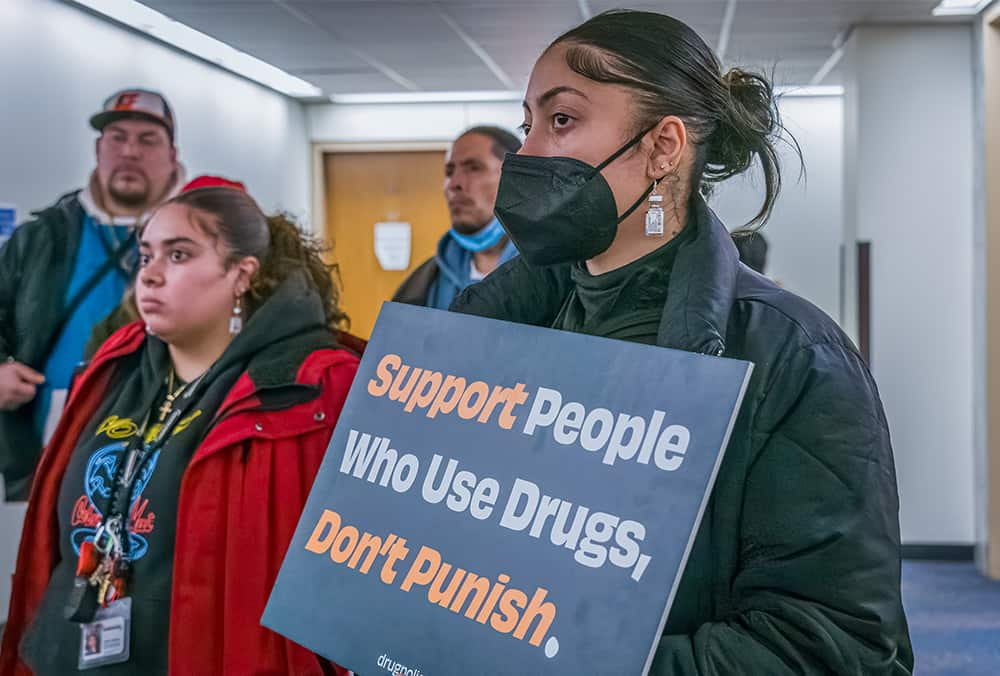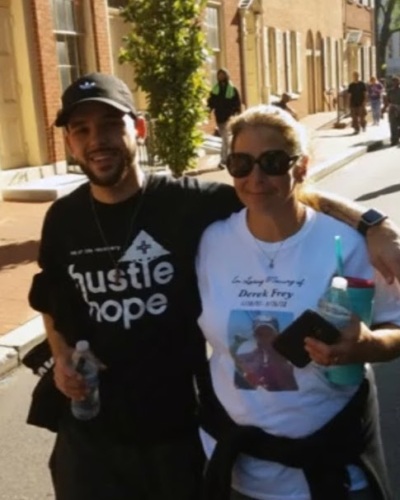Addiction Treatment
Addiction treatment can be a life-changing support for people navigating addiction. Learn more about current treatment models, what’s working and what needs to improve.

Long wait lists, unaffordable rates, and a shortage of providers are just some barriers to treatment. The Drug Policy Alliance is advocating for increased access to effective addiction services.
“ My son Tyler sought addiction treatment over a dozen times, but there was always a wait—sometimes no beds. Once while waiting for a bed, he overdosed in the lobby and still had to wait days for treatment.”

A full range of addiction services—including counseling, medications, long-term treatment, and recovery housing—should be available to individuals. Personalized support reduces overdose risk and improves recovery chances.
Addiction treatment should be available on-demand and readily accessible to anyone who needs and wants it. It should be free or low-cost. Recovery is possible when treatment is accessible.
Medications like methadone and buprenorphine promote recovery and save lives by reducing opioid cravings and withdrawal symptoms, while cutting overdose risk in half. They should be widely available, including in jails and prisons.


Addiction services is an umbrella term that acknowledges that people need a variety of options to fit their unique circumstances. This can range from treatments like medications or psychotherapy to harm reduction services to sobering centers.
There aren’t enough addiction services, like treatment providers or beds, to meet demand. This leads to long travel times or waits—risking overdose or relapse in the meantime. Treatment is often unaffordable, even with insurance. Providers may have strict hours, restrictions, or other limitations that make access difficult. Too often, the treatment that is available is not evidence-based or effective.
Every 31 seconds, someone is arrested for a drug offense, while individuals seeking drug treatment face weeks- or months-long waitlists. The conversation should center around making treatment readily available and easier to access, not around forcing people into treatment through the criminal legal system.
Medications for opioid use disorder (MOUD) can reduce overdose risk by half but are hard to access due to strict regulations. Due to stigma, doctors may not even prescribe these lifesaving medications when they can.
Harm reduction services, mobile outreach teams, and overdose prevention centers can help keep people alive and off the streets. They often serve as an entry point to further treatment and care but are vastly underfunded or blocked by politicians.
Fund evidence-based addiction services to support people where they are, including harm reduction and recovery services. Treatment and services must be available, affordable, and accessible on-demand. Expand access to addiction medications like methadone and buprenorphine and provide basic needs like food and housing for people to survive and be stable enough to find success in treatment.
The Drug Policy Alliance is committed to working with elected leaders to remove barriers and increase access to addiction services.
Addiction treatment can be a life-changing support for people navigating addiction. Learn more about current treatment models, what’s working and what needs to improve.

Forced “treatment” is rejected by scientific and health researchers for being ineffective or harmful. Substance use disorder treatment should be voluntary, effective, affordable, accessible, and appealing.

Susan’s son wanted help for his addiction. But he faced barrier after barrier in his search - from the criminal legal system, insurance companies, and more.


